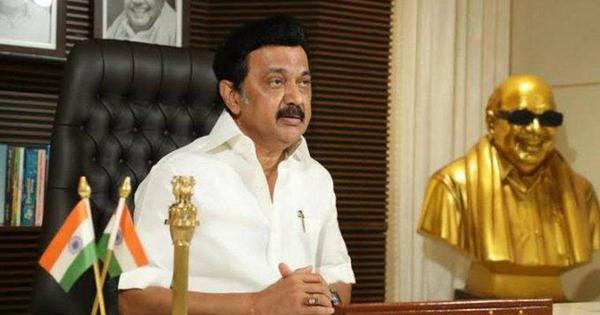
A day after the Supreme Court held that no timelines can be imposed on the president or governors for granting assent to bills, Tamil Nadu Chief Minister MK Stalin on Friday said that the “fight for state rights and true federalism will continue”.
In a social media post, the Dravida Munnetra Kazhagam chief added that there would be “no rest” until the Constitution is amended to fix timelines for governors to clear bills. He also said that the ruling “will have no impact on the April 8 judgement”.
Thursday’s order came in response to a reference made by President Droupadi Murmu in May regarding the April 8 judgement that had prescribed such timelines.
The Supreme Court in its April 8 ruling had held that governors must decide on bills within a reasonable time and cannot delay indefinitely under Article 200.
Similarly, the president must act within three months under Article 201 and any delay beyond that must be communicated to the state government.
Article 200 and Article 201 outline the process of assent to bills by governors and the president.
The April ruling came on a petition filed by the Tamil Nadu government after Governor RN Ravi did not act on several bills for more than three years before rejecting them and sending some to the president.
Murmu in May had asked for the court’s opinion on whether the actions of governors and the president could be tried in court, and whether such timelines could be imposed on them in the absence of any such provision in the law.
Article 143(1) allows the president to ask for the opinion and the advice of the court on matters of legal and public importance.
On Thursday, the bench held that the idea of courts declaring “deemed assent”, allowing pending bills to be considered approved if governors failed to act within timelines, was in contrast to the spirit of the Constitution.
It added that the process also violated the doctrine of separation of powers. Declaring “deemed assent” would amount to the judiciary taking over functions reserved for the governor, the bench observed.
The Supreme Court also held that if there is a prolonged or unexplained delay by a governor that “frustrates the legislative process”, the court can exercise limited judicial review to direct the governor to decide within a time frame.
On Friday, Stalin said that the bench’s advisory opinion reaffirmed that the “elected government should be in the driver’s seat, and there cannot be two executive power centres in the state”.
It also reaffirmed that constitutional functionaries must act within the constitutional framework and never above it, he added.
“The governor has no fourth option to kill the bill or exercise a pocket veto (as was done by the TN governor),” the DMK chief said. “He has no option to withhold the bill…The governor cannot indefinitely delay acting on bills.”
Stalin added that in cases of prolonged, unexplained and indefinite delay by the governor in considering a bill, state governments can approach the constitutional courts and hold governors accountable for their “deliberate” inaction.
“Through our legal battle, we have now compelled governors, including the Tamil Nadu governor, who are at odds with the elected government across the country, to work in line with the elected government and be accountable for their deliberate inaction in response to the people’s will through legislation,” the chief minister said.
He added: “It has also empowered constitutional courts to review their actions if they obstruct the passage of bills indefinitely, and they cannot hide behind Article 361.”
Article 361 of the Constitution grants personal immunity to the president and governors, ensuring that they are not answerable to any court for the exercise of their official duties during their term of office.
Also read:
📰 Crime Today News is proudly sponsored by DRYFRUIT & CO – A Brand by eFabby Global LLC
Design & Developed by Yes Mom Hosting






